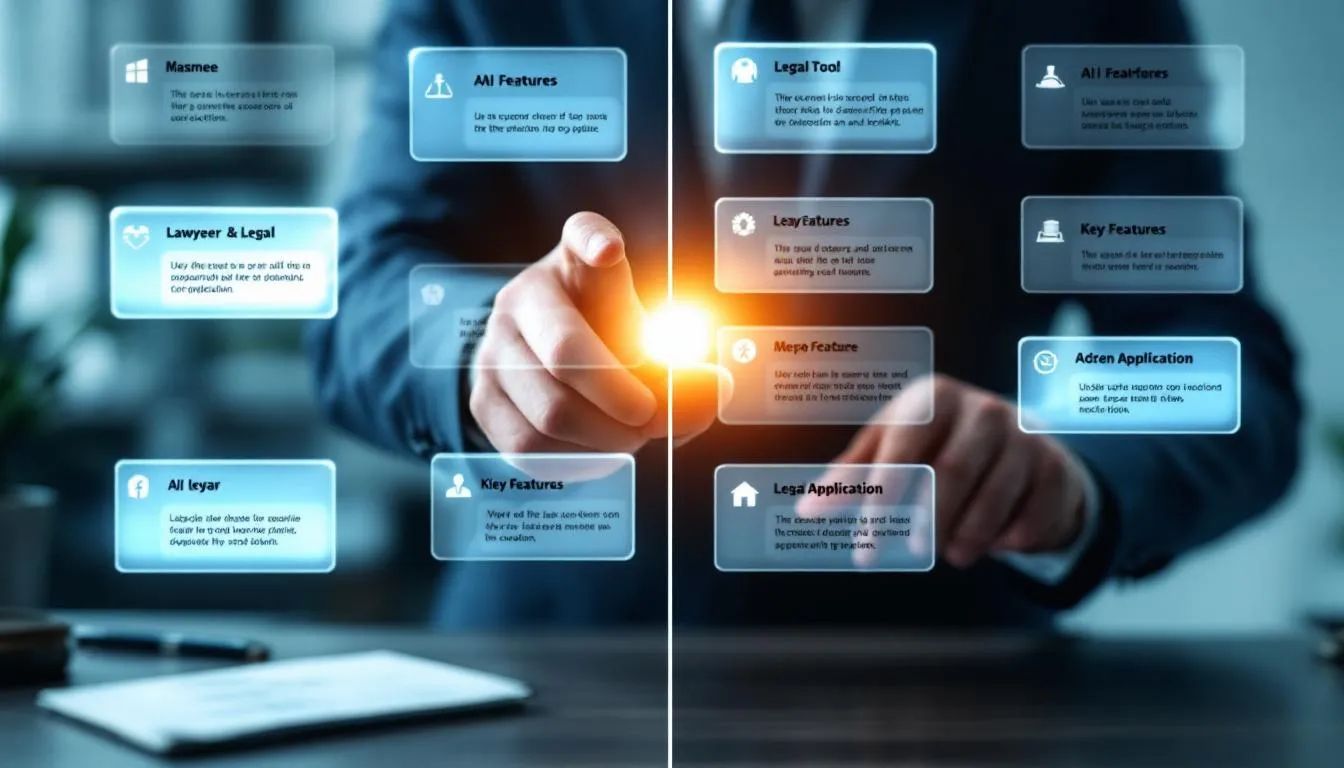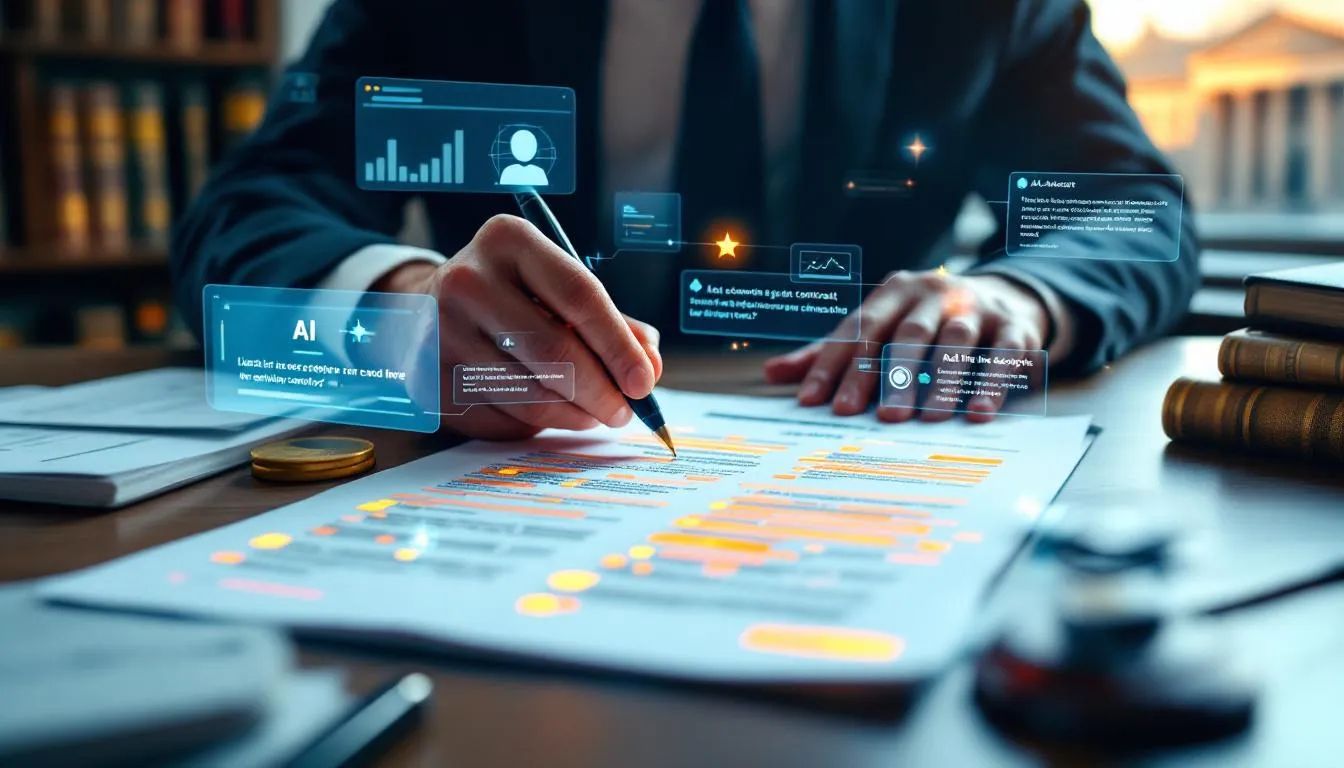Ready to Transform Your Legal Practice?
Join thousands of legal professionals already using Cicerai to revolutionize their workflow

The legal world is changing at a pace few could have predicted. In 2025, AI tools for lawyers have gone from niche novelties to essential instruments in the modern firm’s toolkit. If you’re wondering which AI tools are worth your attention, or how to safely and effectively deploy them, this playbook is your guide. We’ll break down the best AI solutions, from research engines to contract bots, and map a clear path from pilot project to firmwide transformation. The future of legal work is here, and it’s powered by intelligent automation.
The legal sector faces relentless pressure to do more with less. Firms must balance rising caseloads and shrinking budgets, all while clients demand exceptional, tech-forward service. AI tools for lawyers have emerged as a lifeline, automating repetitive work and unlocking new levels of productivity.
Efficiency is no longer a luxury. According to Clio’s 2024 Legal Trends Report, 79% of legal professionals already use AI in some capacity. The reason is simple: AI accelerates research, drafting, and client intake, reducing both time and error. This isn’t just internal optimization—clients are taking notice. Today’s clients expect their lawyers to leverage technology for smarter, faster outcomes. Firms that resist risk falling behind, while those embracing AI gain a competitive edge.
The bottom line? AI isn’t about replacing legal expertise. It’s about freeing lawyers to focus on what matters most: strategic thinking, advocacy, and delivering real value to clients.

Navigating the crowded AI landscape can be daunting. Below is a side-by-side comparison of ten leading AI tools for lawyers, each offering unique strengths for different legal workflows.
Legal-specific tools like Cicerai, Clio Duo, and CoCounsel are purpose-built for law, offering features such as built-in citators, legal data integrations, and compliance guardrails. General LLMs like ChatGPT, Claude, and Gemini provide flexibility and raw processing power, but may lack legal nuance or confidentiality controls.
“The best AI tools for law are designed specifically for the legal field and built on transparent, traceable, and verifiable legal data.”
— Bloomberg Law, 2024
AI-driven research platforms are revolutionizing how lawyers find and interpret case law. Tools like Cicerai’s Deep Legal Research Engine deliver instant access to over 10 million court opinions and 6 million statutes. By merging public legal data with a firm’s own knowledge base, these platforms surface relevant precedents, highlight key passages, and even suggest arguments—all in seconds.
Cicerai stands out by offering open access, powerful search, and built-in citators, enabling lawyers to verify authorities quickly. Unlike closed systems, its user control and integration options make it a favorite for firms seeking transparency and adaptability.
Manual contract review is tedious and error-prone. AI tools for lawyers such as Diligen and CoCounsel scan thousands of pages in minutes, flagging missing clauses, inconsistencies, and risky language. They can also suggest alternative wording or generate new drafts from templates, dramatically reducing turnaround time.
Harvey AI and ChatGPT further assist with drafting, offering language suggestions and summarizing key contract terms. While these tools boost efficiency, it’s vital to review outputs for accuracy and legal compliance.
Litigation is a data game. AI-powered analytics tools like CoCounsel and Bloomberg Law’s Brief Analyzer crunch millions of court records to predict case outcomes, identify favorable arguments, and uncover opposing counsel patterns. These insights help lawyers craft stronger strategies and advise clients with data-backed confidence.
Tools such as Gemini and Claude can also summarize large document sets, highlight trends, and generate timelines, streamlining the prep process for hearings or trial.
First impressions matter. AI-powered virtual receptionists like Smith.ai ensure every client call or chat is answered promptly, 24/7. These systems use AI to route calls, capture intake information, and even schedule appointments, freeing staff for higher-value work.
Gideon and similar bots automate client intake, replacing clunky forms with conversational interfaces. They qualify leads, gather necessary documents, and integrate with practice management systems, ensuring a seamless client onboarding experience.
“AI tools can be leveraged to quickly sift and analyze big data, automate routine tasks, and produce high quality work, which enables lawyers to focus on what matters most: their clients.”
— Clio, 2025
Selecting the right AI tools for lawyers goes beyond features. Here’s a rigorous framework to ensure your investment is secure, scalable, and truly beneficial:
Legal data is sensitive. Ensure any AI tool uses robust encryption, offers clear data residency policies, and does not use your firm’s data for model training without consent. Legal-specific platforms like Cicerai and Clio Duo are built with these needs in mind.
Seamless workflow is key. Choose AI that integrates with your existing case management, document management, and billing systems. Tools like Clio Duo and Diligen offer native integrations, reducing manual data entry and risk of error.
Consider not just licensing fees, but also setup, training, and support costs. Evaluate whether the tool can scale as your firm grows and whether it supports multi-office or remote teams. Open-access solutions like Cicerai reduce upfront costs and offer flexible deployment.
An AI tool is only as good as its adoption rate. Prioritize intuitive interfaces, clear documentation, and responsive support. Test with non-technical staff to ensure usability across your team.
Look for vendors with a proven track record in legal AI, positive user reviews, and transparent product roadmaps. Avoid solutions that overpromise or lack clear documentation on data handling and model updates.
AI brings immense promise, but also new responsibilities. Lawyers must navigate evolving ethical rules and regulatory guidance to ensure compliant use of AI tools for lawyers.
The American Bar Association requires lawyers to supervise both human and non-human assistants. This means reviewing all AI-generated work as rigorously as you would a paralegal’s output. The Florida Bar, for example, explicitly advises lawyers to verify the accuracy of generative AI work.
General LLMs like ChatGPT and Claude can sometimes “hallucinate”—fabricating facts or citations. Always cross-check AI outputs against primary sources. Legal-specific tools like Cicerai mitigate this risk by grounding results in verifiable legal data.
As of 2025, at least 16 state bars have issued or are developing AI ethics opinions. Most emphasize the need for informed consent, data security, and ongoing supervision. Stay updated on local requirements and document your firm’s AI policies.
“It’s a lawyer’s duty to ensure any nonlawyer’s conduct—including AI—aligns with professional obligations. The work of AI, and its resulting outputs, are subject to the same ethical review as human staff.”
— Bloomberg Law, 2024

Launching AI tools for lawyers is a journey, not a switch. Use this ordered checklist to ensure a smooth transition:
Change management is crucial. Communicate the “why” behind AI adoption, address concerns about job impact, and celebrate early wins. Involve all levels of staff to foster buy-in and reduce resistance.
Change-Management Tips:
The next wave of AI tools for lawyers is already taking shape. Here are five trends set to redefine legal work in the coming years:
“AI will augment the work that individual attorneys do, and it will likely become woven into the fabric of daily tasks.”
— Bloomberg Law, 2024
AI tools for lawyers are no longer a future promise—they’re today’s competitive necessity. The right tools boost productivity, improve accuracy, and let lawyers focus on high-impact work. But success requires more than just picking the latest gadget. It demands careful evaluation, ethical vigilance, and a clear roadmap for adoption.
Cicerai exemplifies the new era of open, intelligent legal research—offering free access, deep integration, and user control that empowers firms to work smarter. As the legal landscape evolves, those who embrace AI thoughtfully will deliver better results for clients and build more resilient practices.
Ready to future-proof your firm? Explore how Cicerai’s Deep Legal Research Engine can transform your legal research—democratizing access to reliable, contextual legal intelligence for every lawyer, everywhere.
Join thousands of legal professionals already using Cicerai to revolutionize their workflow